How therapy helps anxiety
Anxiety is a common issue that many people seek therapeutic support for, and understanding how therapy helps anxiety can be crucial for those struggling. Anxiety can be very debilitating, affecting all aspects of life. During the COVID-19 lockdowns, I noticed an increase in clients dealing with anxiety. The restrictions on our usual freedoms, whether justified or not, often led to feelings of lost control. This sense of powerlessness is frequently linked to anxiety, and during that time, I found it important to remind people to focus on what they could control. The Serenity Prayer became particularly relevant, connecting well with the recovery process, especially within 12-step programs. This spiritual connection can significantly assist the journey to recovery.
Understanding Anxiety as Fear
Anxiety can often be understood as a form of fear. While you may resist this notion, thinking, “I’m not afraid,” anxiety often manifests itself in ways that feel separate and distinct from fear, becoming a disorder in itself.
Medication and Therapy: A Combined Approach
Anxiety can be treated with medications such as fluoxetine and citalopram, with many clients reporting positive results, particularly with the latter. These medications can take the edge off anxiety, allowing individuals to more effectively challenge and overcome it. This is where therapy plays a vital role—by generating courage.
The Complexity of Anxiety
It’s essential to approach anxiety with care. It’s not as simple as telling someone to be more courageous. Chronic anxiety, especially when triggered by life events, cannot be dismissed with such a simplistic view. Telling someone to “just be braver” can worsen their condition.
The Therapeutic Process: A Safe Space
In therapy, the first step is to create a safe space where clients can explore their emotions. Sometimes, revisiting past events, if the client feels ready, can provide a sense of validation. This process is often referred to as “the value of being there.” It’s critical for clients to feel that someone is with them in their turmoil.
Challenging Anxiety: Systematic Desensitization
One effective method to challenge anxiety is through ‘Systematic Desensitization.’ This process involves confronting anxiety step by step. A classic example can be seen in the movie “Vertigo,” where the main character faces his fear of heights by practicing calm breathing while gradually climbing a ladder.
Similarly, clients combat anxiety by facing it head-on in a controlled, gradual manner. This involves practicing calmness while tackling anxiety-inducing situations, one step at a time. The movie “Dream Scenario” also illustrates this concept, showing a teacher using systematic desensitization with young people.
Avoiding Overwhelm: Graded Exposure
It’s important not to overwhelm clients by asking them to do too much too soon. This approach, often termed “graded exposure,” is supported by the use of ISMART goals. These goals should be inspirational, specific, measurable, achievable, realistic, and time-framed. By first creating an empathic space and then building on these goals, progress can be made in a supportive and reassuring environment.
Cognitive Behavioral Therapy (CBT) for Anxiety
Cognitive Behavioral Therapy (CBT) is another effective tool for managing anxiety. It involves working through the faulty thoughts that contribute to anxiety. I find CBT particularly helpful, especially when it comes to examining overwhelming thoughts and emotions. By running these thoughts through a rational filter, we can gradually reduce their intensity.
Seeking Support
If you’re feeling anxious and need support, I’m here to help. An introductory session is a great starting point to assess your situation and build rapport. From there, we can develop a plan to move forward. A package of sessions, along with my digital program, can help anchor the goals we set each week and continue the progress even after our sessions conclude.
Reach Out
If you’d like to learn more about how therapy can help with anxiety or if you’re ready to book a session, feel free to reach out. I’m here to support you on your journey to overcoming anxiety.
Wishing you a lovely day
Phil Walker
Provisional Member of the New Zealand Association of Counsellors (PNZAC)
www.newbeginningstherapy.co.nz
philip@newbeginningstherapy.co.nz
64 21 058 3234

